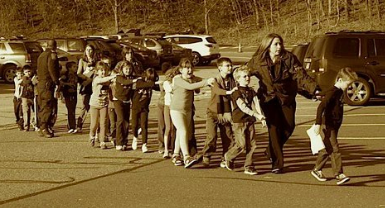(This is being submitted to the Deeper Leader Synchro Blog sponsored by Evangelical Seminary. Find out more here.)
WARNING: This post may rock your world. (a.k.a. “BOOM post” )

How should we read and study the Bible?
Debates on this will rage, but one thing we often assume that we can simply read the Bible and understand it. Essentially, the Holy Spirit just pops the correct meanings into our brains. Right?
If that were the simple truth, we’d all be, at least mostly, on the same page in Christianity, and we ARE! Um. bzzzz. No…not. at. all.
The Holy Spirit will convict our conscience of sin, and the Holy Spirit help us understand certain things about God’s nature and his grace. Yet, some huge obstacles lie before us concerning the details of Scriptural text.
These details can, and do turn into doctrine or false teaching that fall outside the intent of the text. In clumsy hands, dogmatic presumptions of the Holy Spirit’s opinion have led to all manner of errors, deceptions, injustice. And this study method, if you will, has even started more than a few whacky cults. Yes, and some involve koolaid.
SO!
If you forget EVERYTHING about this post, please don’t forget this. When interpreting the meaning of the Bible (a.k.a. engaging in hermeneutics) remember: A scripture passage cannot mean something different than its original intent.
Huh? What?
Let that red text sink in. Please…Re-read it.
Seriously. It’s a huge deal once you truly comprehend it, and even bigger when you apply it.
A scripture passage cannot mean something different than its original intent. (That’s a needed re-refresher. Please bear with me.)
Understanding the Bible involves a continual tension between discerning…
Our understanding and the writer’s intent.*
Here are just 5 a mere few of the obstacles that can hinder a proper understanding of scripture:
– Language barriers (Ex. Jesus spoke Aramiac, The New Testament was written in Greek (a dead form of the Greek language now,) and English was taken from the Greek. This book collection HAS TO be divine and God-breathed to still transform individuals, whole communities, and cultures through its message of the Good News!)
– Historical distance barriers (Now is later. Stuff has changed. ‘nuf said.)
– Cultural barriers (We don’t wear the same stuff, and do the same things, at all. period.)
– Circumstantial differences (But one example: Every church has “its stuff” unique to it. Particular concerns and problems.)
– Our lens/perspective, education, and experiences (I hope this is self-explanitory. If not, maybe this blog is too much for you. No worries. Just search this blog for “humor” and forget about this post entirely.)
Quick & Hot Tips for the Good Book
When reading, and attempting to understand a Bible passage,
– include paragraphs and sections, rather than a sentence, a phrase, or a lone sentence. (Nothing can twist scripture more than attempting to find meaning in a small phrase of scripture, instead of taking the complete thought and verbiage into account. You wouldn’t want to be taken out of context, so you know, do the right thing.)
– Read a few translations (Don’t parse words. Just don’t. It’s major mistake! Chances are the translators had to give it their best guess. Plenty of words in ancient Hebrew, and Greek, won’t and can’t translate out of the original language. Translators disagree. A lot. So, don’t assume you have read the perfect word choice. The word may not have been used or known outside of that one, or just a few, times.)
– Consult commentaries (These folks have dedicated their whole life to studying the Bible, the ancient culture, the history, etc. They’ve studied deeper, longer, and harder than you, and probably have some great insights from their research.)
Yes. This post was a “BOOM post”. It may come off sort of… um… strong. I see people all over the place butchering what the Bible says simply because they are naive. They haven’t bothered or known how to read the bible in a way that will get things at least mostly right. They start to sound goofy pretty fast. Next time you hear someone spouting off about a Bible passage, inquire if they’ve done the passage good justice by learning it intelligently in these few ways; then (as nicely as possible) challenge their mode of learning and teaching.
Bible study is a vital spiritual discipline, and like prayer, fasting, giving, and all the rest should be done through being better informed. Learning is a continual process. Keep up with it!
*Some of my information is straight from Stuart and Free’s fantastic book: How to Read the Bible for All its Worth. Many agree that it’s the book par excellence, for understanding and studying the Bible. Give it a whirl.
Did this post help you think of the Bible in a new way?
What has helped you understand what the Bible says?




